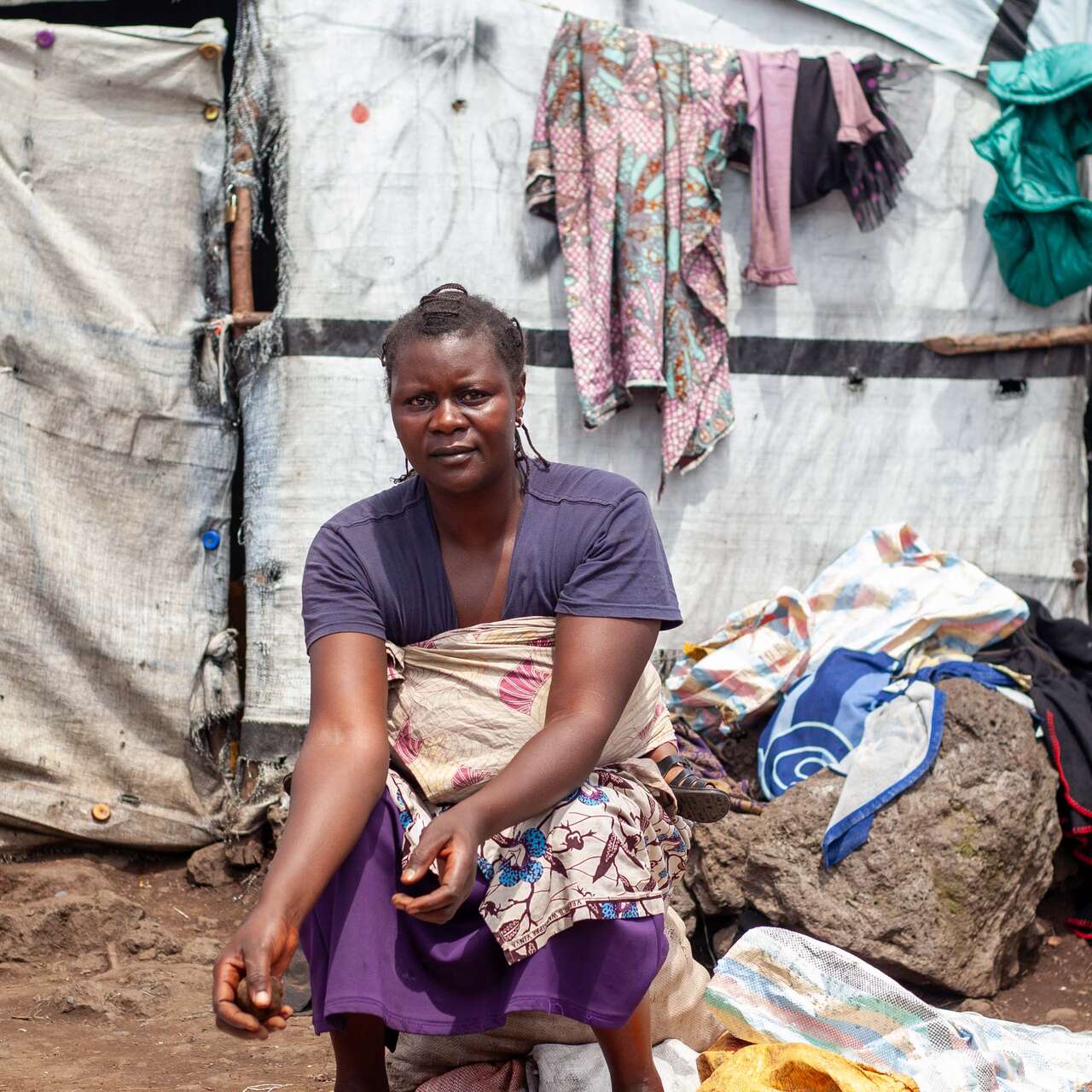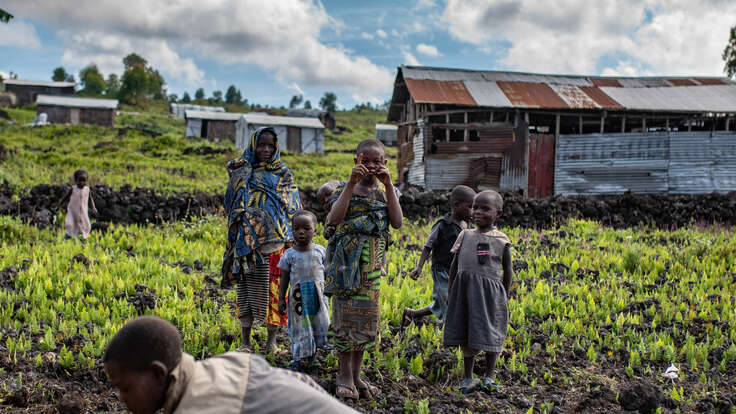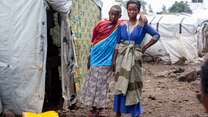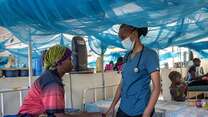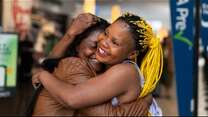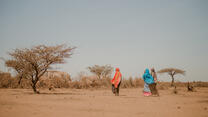Conflict in DRC fuels a deteriorating health crisis
- The IRC is deeply concerned about the rapid collapse of health services, including a cholera outbreak with over 650 cases reported in just one week.
- A shortage of critical medical supplies is putting lives at risk.
- Poor sanitation and lack of clean water are fueling the spread of cholera and other preventable diseases.
- The IRC is delivering emergency services in Goma and Kahele to curb the outbreak.
Country facts
- Population: 99 million
- People in need of humanitarian assistance: 25.4
- People internally displaced by crisis: 6.9 million
- Rank in Human Development Index: 179 of 191
IRC response
- Started work in Congo: 1996
The Democratic Republic of Congo (DRC), located in Central Africa, has spent decades in the grip of violent conflict and economic unrest, leading to the country being featured on the IRC’s Emergency Watchlist for 10 years in a row. Security has severely deteriorated since 2017, leaving over 6.9 million people internally displaced. Some 25.4 million people in the DRC are in need of humanitarian support—the largest number of any country in 2024.
In recent years, the DRC has faced disease outbreaks, rising food insecurity and climate shocks—all while facing protracted conflict. The IRC helps vulnerable Congolese meet urgent needs and provides support to rebuild communities.
Following years of economic and political decline and two regional wars, people in Congo continue to face extreme violence, massive displacement and widespread rape. The conflicts caused an estimated 5.4 million deaths, mostly as a result of disease and malnutrition.
In 2016, the country became caught in an electoral and political crisis that sparked civil unrest and emboldened armed groups in some areas. In conflict zones, women and girls face widespread violence, and people—including children—are extorted, kidnapped and forced by their captors to fight or work.
In October 2023 the M23 armed group resumed its offensive, ultimately driving conflict levels and humanitarian needs, particularly in the country’s Eastern region. M23 is one of more than 120 armed groups operating in Eastern DRC, contextualizing the displacement of more than 5.6 million in this region alone.
Some 25.4 million people in the DRC need humanitarian support, making it the largest humanitarian crisis globally. Those in need include the DRC’s 6.9 million internally displaced people, 5.6 million of whom were displaced from the country’s eastern region. Efforts to solve this chronic displacement crisis are hindered by poor governance and infrastructure, and ongoing insecurity in conflict-affected areas.
A lack of clean water and sanitation services in overcrowded camps for internally displaced persons contributes to the spread of disease at a time when the DRC’s health system is at risk of collapse. The potential El Niño-induced flooding forecasted in 2024 would exacerbate the spread of disease and increase displacement. Such climate shocks would also hinder agriculture production, affecting the DRC’s food-insecure populations—one of the largest in the world.
Sexual violence against women and girls is also a significant problem in Congo. Early marriage and pregnancy force girls to drop out of school, reducing their livelihood opportunities and increasing their exposure to risk and abuse.
Despite immense needs in the country, the DRC’s 2023 humanitarian response plan received just 40% of its necessary funding, causing shortfalls in critical service provision and aid delivery. Constraints on humanitarian access are high as bureaucratic impediments have grown while protests against the U.N.’s peacekeeping mission in the country indicate growing local suspicion of international actors, including humanitarians.
The IRC’s mission is to help people whose lives and livelihoods are shattered by conflict and disaster to survive, recover and gain control of their future.
We first began working in Congo in 1996, providing emergency assistance and humanitarian aid to those affected by violence and uprooted from their homes. We also worked with local communities to help them rebuild and to create education and health care programs.
As the country recovers from decades of conflict, widespread disease and climate shocks, the IRC delivers emergency assistance to individuals affected by recurring crises while fostering social cohesion within communities through collaborative efforts with Congolese institutions. We also provide essential health services, including primary health care, sexual and reproductive health, infection prevention and control, as well as water, sanitation and hygiene services.
Our work includes;
- training health and government workers, rehabilitating hospitals and clinics, and providing essential medicine;
- offering a range of reproductive health services to women and adolescent girls to enable safer childbirth and improved spacing between children;
- ensuring girls are enrolled and succeeding in school, as well as supporting them with informal education, so they can take control of their futures;
- reinforcing violence prevention and support to survivors of gender-based violence through comprehensive interventions, including providing psychosocial support;
- facilitating economic recovery, and ensuring access to essential services, such as legal and medical assistance;
- collaborating with communities and their institutions to promote social cohesion aimed at conflict reduction and support to primary and secondary schools.
The IRC’s work in Congo is more critical than ever as millions reel from ongoing conflict and find it increasingly difficult to meet basic needs. We pledge to put the needs of those most affected by crisis, specifically women and girls, at the forefront of our efforts and to achieve measurable improvements in health, safety, education, and economic wellbeing.
We will continue to support Congolese displaced by crisis and expand our reach in the country’s most vulnerable communities. We will also continue to help Congolese women and girls who have suffered from violence and support them as they rebuild their lives.
